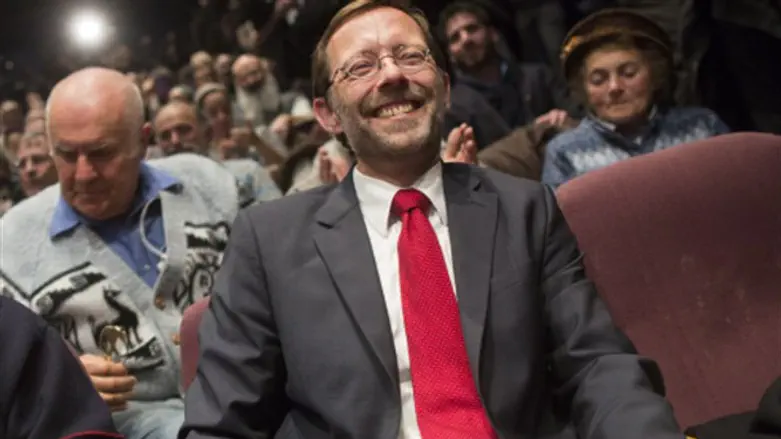
Three years after his previous government raised the electoral threshold for Israel’s Knesset from 2% to 3.25%, Binyamin Netanyahu is reportedly pushing to return the threshold back to its pre-2014 level.
According to a report by Channel 2 Sunday evening, the Prime Minister is looking to repeal the electoral reform pushed by then-Foreign Minister Avigdor Liberman (Yisrael Beytenu), who now serves as Defense Minister, and then-Finance Minister Yair Lapid (Yesh Atid).
Israeli political scientists, including members of the Israel Democracy Institute, have long advocated raising the Knesset’s electoral threshold to reduce the number of parties elected to the legislature, and thus create more stable, longer lasting governments.
In the 2015 election, the new 3.25% threshold was used, raising the bar for entry into Israel’s legislature to the equivalent of 3.9 seats. With 4,254,738 valid ballots cast that year, the threshold amounted to 138,278 votes. Below that amount, a party – even one which had won the equivalent votes for one, two, or even three seats – would be barred from the Knesset.
Former Interior Minister and ex-Shas chief Eli Yishai’s Yahad list, which ran jointly with Baruch Marzel’s Otzma Yehudit faction, narrowly missed the 3.25% threshold, receiving just 2.97% of the vote, or the equivalent of three mandates.
Recent polls show that the Shas party, currently led by Interior Minister Aryeh Deri, is also at risk of falling below the minimum threshold, particularly if Deri remains at the party’s helm in the next election.
One survey published by Walla last week showed Shas, which currently holds 7 seats - down from a peak of 17 in the 1999 election - would fall to just 4 mandates if a new election were held today.
Police have been probing Deri and his wife for alleged money laundering, fraud, breach of trust, theft, fraudulent registration, numerous tax offenses, and corruption. Last Monday, Kan reported that Deri and his wife Yaffa are likely to be indicted.
With a repeal of the 3.25% threshold, the Damoclean sword hanging over Shas’ head would be removed, and the odds of Eli Yishai’s Yahad entering the Knesset would increase dramatically.
Earlier this month, Yishai announced that Yahad would run again in the next election.
Another former MK could also benefit from a repeal of the current electoral threshold: Moshe Feiglin.
Feiglin, who once led the Jewish Leadership faction within the Likud, now chairs the Zehut (Identity) party, which hopes to enter the next Knesset, yet has failed to clear the minimum threshold in recent polling.
A poll commissioned by the Zehut party did find, however, that at the current threshold level of 3.25%, the party would receive 2% of the vote, or the equivalent of 2.4 seats – not enough to enter the Knesset under current rules, but sufficient if the threshold were indeed returned to its pre-2014 level.
The poll, which was conducted by veteran Israeli pollster Camille Fuchs, found that if voters were confident Feiglin’s new party would pass the threshold, it could win as many as six seats in the next election.
